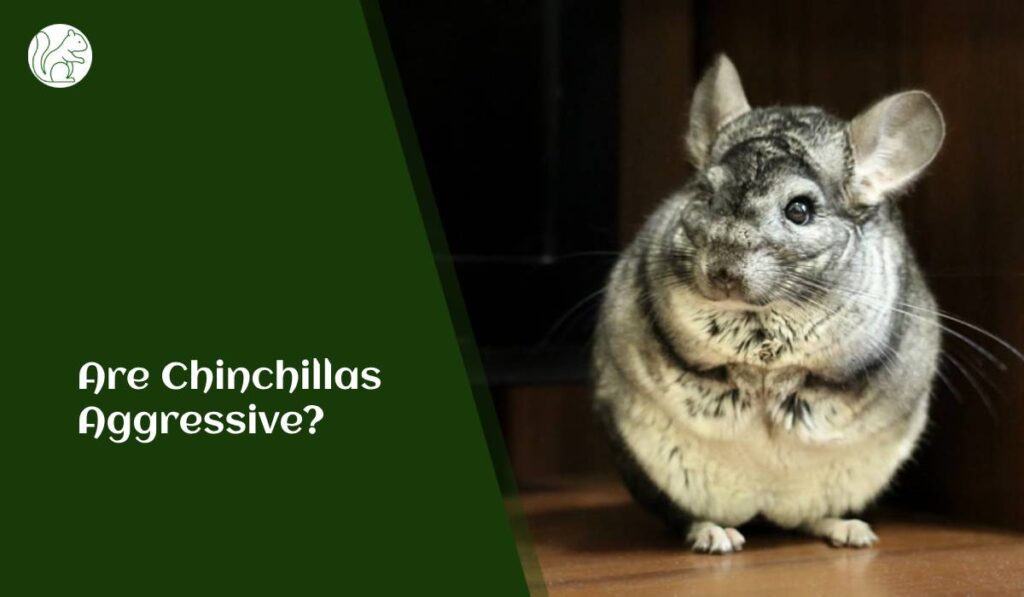Chinchillas are undoubtedly captivating creatures known for their luxurious fur, tiny round bodies, and endearing, large ears. But beneath their charming exterior lies an enigma – their temperament. Are these fluffy rodents as gentle and friendly as they appear, or do they harbor a hidden aggressive side? In this comprehensive article, we will delve into the world of chinchilla behavior, exploring their nature, potential triggers for aggression, and tips on raising a well-behaved chinchilla.

Understanding the Chinchilla’s Nature
To comprehend whether chinchillas are aggressive, we must first understand their natural disposition. Chinchillas are social animals, hailing from the mountainous regions of South America. In the wild, they live in colonies and are known for their strong sense of community. However, when these furry critters are brought into captivity, their behavior can vary based on various factors.
Chinchillas raised in a well-cared-for environment tend to be more amiable and adaptable, while those exposed to stress or neglect might exhibit signs of aggression.
Signs of Aggression in Chinchillas
- Biting: One of the most apparent signs of aggression in chinchillas is biting. Chinchillas have sharp teeth, and when provoked or frightened, they may use them as a defense mechanism. This can lead to painful bites for their owners.
- Spraying Urine: Chinchillas may spray urine when they feel threatened or want to establish territory. This behavior can be both aggressive and territorial.
- Fur Pulling: In multi-chinchilla households, dominance struggles may lead to fur pulling. If one chinchilla becomes excessively dominant, it can lead to fights and aggressive behavior.
- Growling and Hissing: Chinchillas communicate through vocalizations, and growling or hissing can indicate irritation or aggression.
- Chasing: Chinchillas may chase each other in a hostile manner, often during disputes over territory or hierarchy.
What Triggers Chinchilla Aggression?
Understanding the triggers for chinchilla aggression can help mitigate potential issues. Some common triggers include:

1. Improper Handling
Rough or improper handling can terrify chinchillas, causing them to lash out defensively. Always handle your chinchilla gently and with care.
2. Overcrowded Cages
Chinchillas need personal space. Overcrowded cages can lead to territorial disputes, fueling aggression among chinchillas.
3. Mating Season
During mating season, male chinchillas can become more territorial and aggressive. Separate them during this period to prevent conflicts.
4. Health Issues
Chinchillas in pain or discomfort may display aggression as a way to protect themselves. Regular vet check-ups are crucial.
Tips for Raising a Well-Behaved Chinchilla
Now that we’ve explored the potential for aggression in chinchillas, let’s discuss how to ensure your chinchilla is well-behaved and friendly:
1. Socialization
Allow your chinchilla to interact with others of its kind, but monitor their interactions to prevent aggressive behavior.
2. Proper Cage Setup
Ensure your chinchilla has a spacious, well-ventilated cage with hiding spots and toys to reduce stress and territorial disputes.
3. Gentle Handling
Always handle your chinchilla gently and calmly. Avoid sudden movements that may startle them.
4. Regular Vet Visits
Routine check-ups can help identify and address health issues that may trigger aggression.
5. Patience and Time
Chinchillas may take time to adjust to their environment and owner. Be patient and give them the time they need to feel comfortable.
Conclusion
In conclusion, chinchillas are not inherently aggressive animals. Their behavior depends largely on their environment, upbringing, and health. By providing a nurturing home, socialization, and proper care, you can raise a chinchilla that is more likely to be friendly and well-behaved. Remember that each chinchilla is unique, so it’s essential to be attuned to their individual needs and personalities. With the right approach, chinchillas can make delightful and affectionate companions, dispelling the myth of their inherent aggression.
